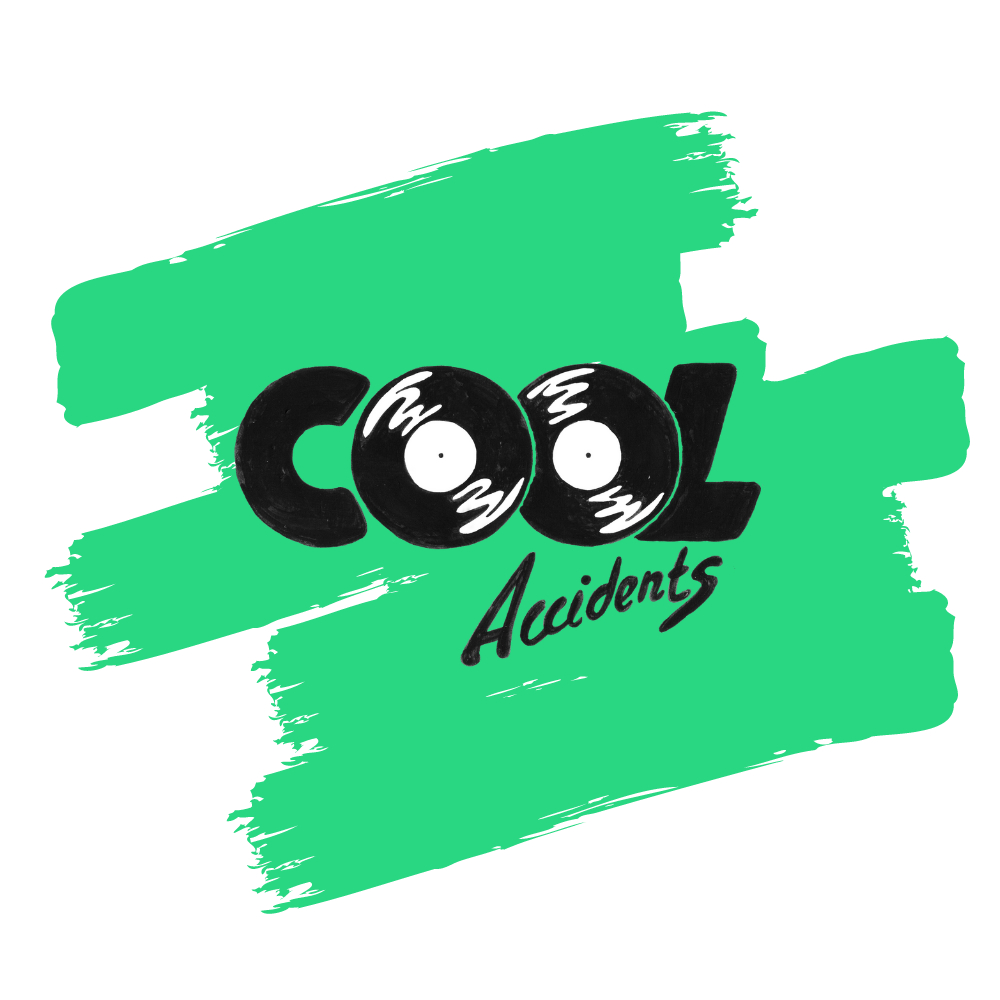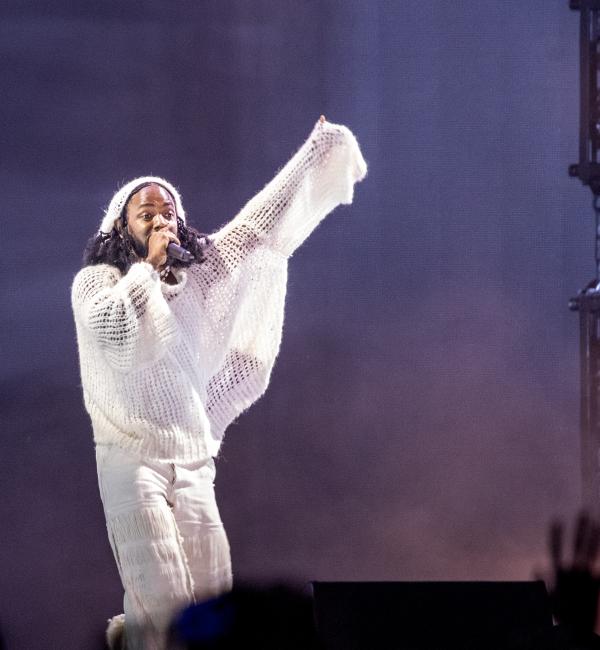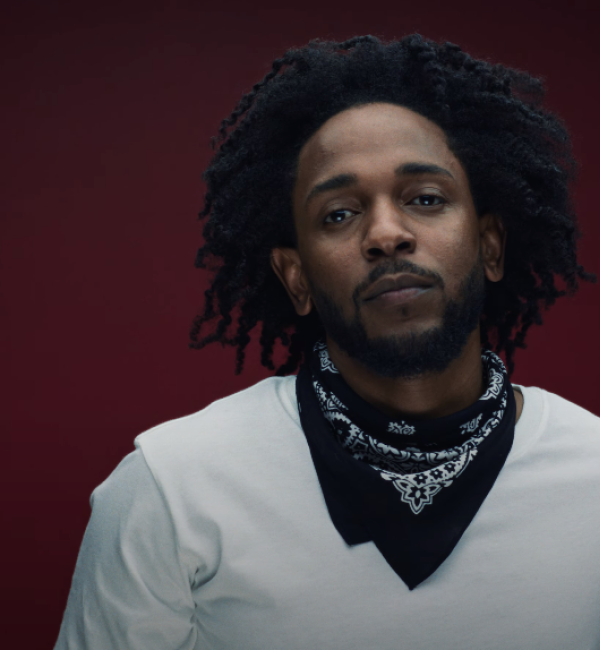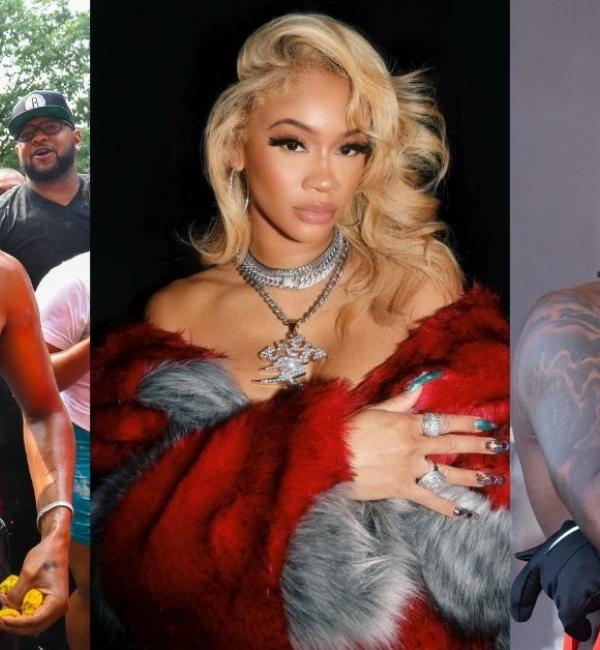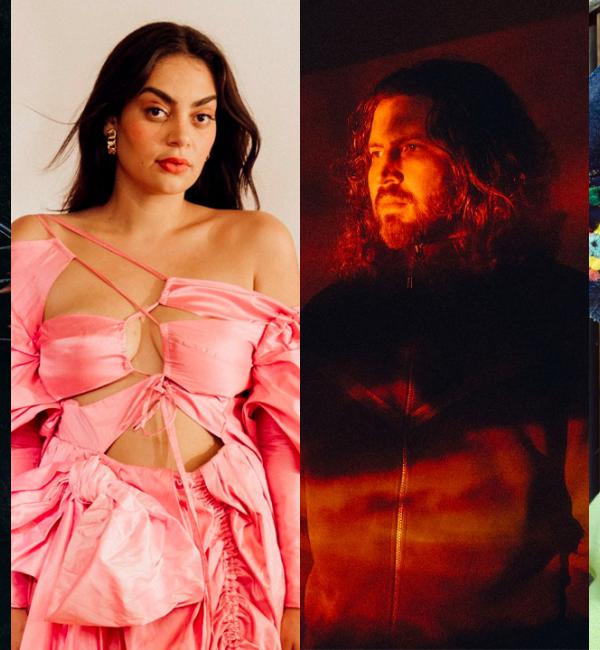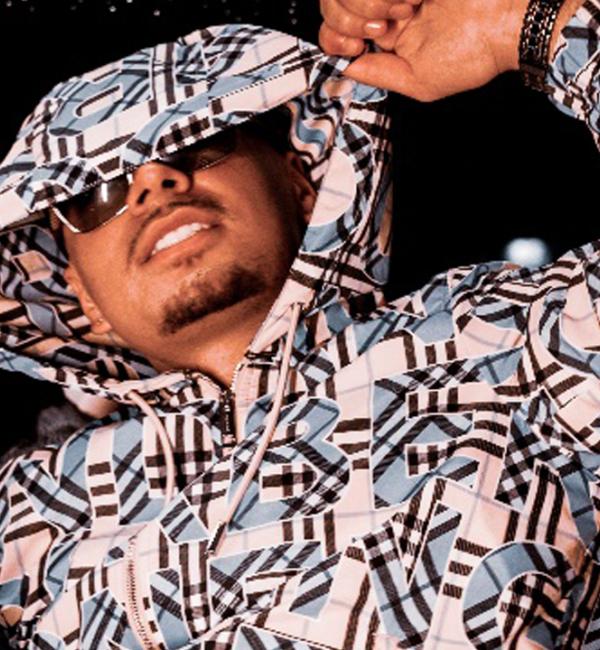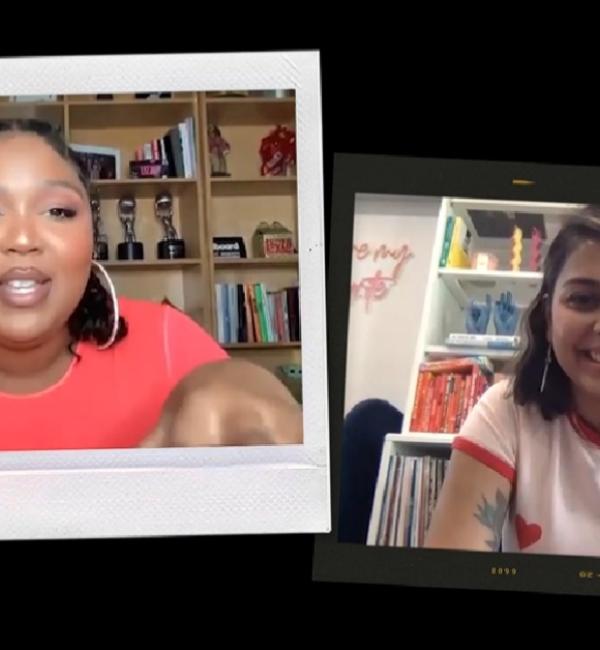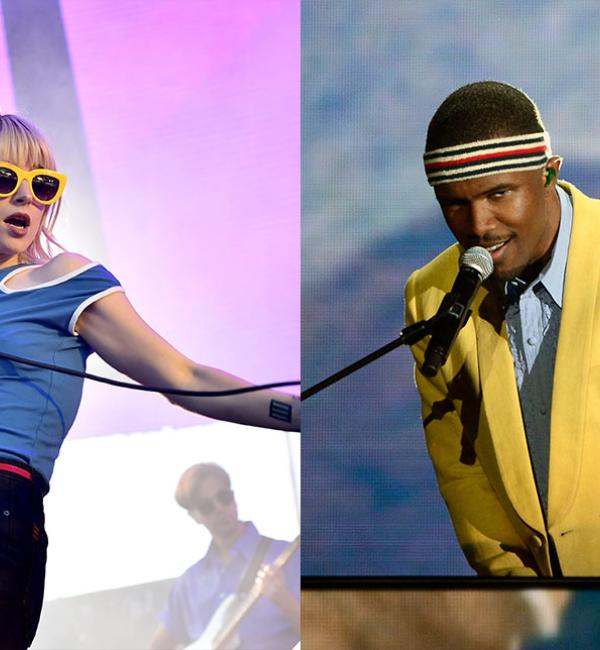Amerigo Gazaway is a multi-talented Nashville based DJ-Musician-Producer whose recent work is a prolific collection of projects under the banner of ‘Soul Mates’: A series of ‘collaborations that never were’ that join the dots between Black music styles from the last eight decades. Since 2011’s ‘Fela Soul’ project, Gazaway has breathed new life in to the term ‘mashup' and completely re-contextualised the concept of crate digging for samples, by creating several album-length projects that successfully pair the music of the past with contemporary Hip-Hop, pieced together intricately with all manner of interviews, studio outtakes, snippets and skits. Be it De La Soul raps over chopped Fela Kuti loops, Yasiin Bey (aka Mos Def) singing and rhyming over Marvin Gaye career highlights or his current marriage of Southern Rap pioneers UGK with Blues guitar legend BB King, Amerigo Gazaway’s 'Soul Mates’ projects are always true works of art that push the culture of Hip Hop forward, whilst preserving the past. Get busy on his huge discography over on AG's Bandcamp page.
How long did ‘The Trill Is Gone' take you from concept to completion and how does that compare to other projects you have worked on?
The idea began to form shortly after B.B. King's passing. I was listening to an interview on NPR radio where B.B. King was talking about "the trill", a guitar technique he developed in attempt to mimic the vibrato of a human voice (or a steel guitar.) That style essentially revolutionized the way that modern electric blues musicians play. Weeks later, I was listening to the UGK song "Ain't That A B*tch" which samples B.B. King's "Chains and Things” and that was when the idea for "The Trill Is Gone" clicked. It’s hard to say exactly how long but from concept to completion the project took several months, which is about the same amount of time it usually takes to complete most of my projects.
Your last project Yasiin Gaye got legitimised when it was picked up for an Apple commercial. How has the affected how you might undertake a project? For example, is your new record ‘cleared’?
Last year we were able to clear the track "You Are Undeniable" (from Yasiin Gaye) for use in an Apple iPad commercial and an official release via Interscope. But to clear an entire project like Yasiin Gaye or TTIG within the clearance structure that is in place now would cost millions because of all the samples involved. With the new project, I did try to reduce the amount of samples sources somewhat as to make it easier to clear if I ever got the opportunity. That is another reason I tried to incorporate more live instrumentation on this record. I also collaborated with UGK historian and documentary film maker Sama'an Aswari to incorporate UGK interviews and soundbites. I did take some artistic liberties as well, like the parts where I'm scratching and use a lot of different vocal samples back to back.
Have you had any contact with Bun B or BB King’s estate?
I sent Bun the album the day it came out and he said that they actually used to joke about remixing their stuff with B.B. King, which was really awesome to hear. Haven't had any contact with the B.B. King estate but I recently spoke with someone who worked with him for several years and he was really impressed with the project.
If the relationship between hip hop and sampling was a novel, it would be quite the page turner. Going in to these projects, do you ever get the death wobbles of a Tuff City/Biz Markie/Paul’s Boutique type of scenario where the effort to liberate it, might not be worth it?
We had the death wobbles before with "Bizarre Tribe: A Quest to The Pharcyde", which is no longer available due to a cease and desist from Sony Music. In response, we wrote an open letter in which we explained our position on the project and why we thought it should be protected under fair use. That letter (penned by my creative partner Rickey Mindlin) sparked hundreds of fans to respond and write their own letters to Sony and it was inspiring to see that many people come out in support of the project.
Do you ever worry you’re flying too close to the sun?
Sometimes. But without risk, there is no innovation or progress. If anything, I hope to further the conversation for sample-based music as a legitimate art form.
You have worked on Afrobeat, Soul and now the Blues as your blueprints. Any plans to touch on Reggae or Jazz? In re-contextualising these styles are you breathing new life in to them?
My father is a Jazz trumpet player (Gary "El Buho" Gazaway)so Jazz definitely runs in my blood. We've actually been in touch with the management/estate of a couple of Jazz artists recently so we’re keeping our fingers crossed that something will materialize. I also love Reggae, and I've always wanted to explore Brazilian music since my mother's side of the family is from Rio de Janeiro.
I think hip-hop has always had a unique way of re-contextualizing and breathing new life into other forms of music (and vice versa.) But the issue with that is transparency. Revealing your sample sources (or another producer's) has always been frowned upon in hip-hop because of the legal consequences involved. That created a culture of secrecy and paranoia where people are afraid to share the knowledge, cite their influences, and give credit where it's due. And that's unfortunate because most hip-hop producers are enormous fans of the artists they re-interpret. If clearing samples was a more streamlined process that didn't cost thousands of dollars up front, I'm sure a lot more people out there would play by the rules.
We’re seeing some fantastic modern examples of preservation of america’s cultural expressions, recently with Kendrick Lamar taking on free jazz and Don Cheadle tackling a Miles Davis biopic. Were we ever in danger of losing touch with the roots of this culture?
I think those are fantastic examples but they are few and far between. Not that there aren't enough people keeping the culture alive (because there are), but they aren't always in the forefront or being covered properly by the right outlets. That's why I’m so appreciative when outlets like yours are interested in taking the time out to talk with me. I’d say another reasons we may be at risk of losing touch with our roots is because of the strict sampling laws and the fact that a lot of labels are still trying to keep this music locked away. As a result, sampling in hip-hop has become nearly obsolete and we are becoming further and further removed from our history and our connections to the past.
Sampling in Hip Hop seems to be a dying art form, especially in the popular Southern styles of today that tend to favour more electronic styles of production. UGK always brought such a rich musical character to their sound, so do you think it’s ironic that you’re bringing a classic hip hop production technique to a style that’s quite current and popular? Is that the Amerigo Gazaway milieu in a way?
You could say I have one foot in the past and one in the present. I'm old enough to remember what life was like without computers, internet, smartphones, iPods, Serato, or DJ controllers. And I remember what it was like to go to the record store, buy a LP or cassette tape, and take it home and read the liner notes. But I also witnessed the birth of a new millennium and I began to embrace computers, new media and technology early on. That perspective allows me to have both a respect and appreciation for the analog world while still participating in the digital age.
In your projects you incorporate a lot of interviews and snippets which must take as long to dig through as hunting for records. Is that the most challenging part of your projects? If not, what is? When you find a bit like that interview where the guy talks about finding the Marvin Gaye masters do you have those incredible lightbulb moments?
That part is definitely tedious but it’s also fascinating. Weaving the songs together to create a meaningful narrative is always a challenge for me. There are so many different factors to consider when sequencing an album - theme, subject matter, mood, tempo, key, etc. But it's also rewarding when you find something like Harry Weinger and Questlove talking about Marvin's multi-tracks, or B.B. and Terry Gross discussing "the trill".
In this record you seem to incorporate a much greater live element. Talk us through that, if you would.
Part of that was wanting to challenge myself. Another part of it was not wanting to rely on samples as much (and making songs easier to clear.) But mostly it’s to help tell the story. Pimp C came from a musical background - his father was a trumpet player, like mine - and he always incorporated a lot of live instruments (and the blues) into his productions. The soulful samples, dusty breakbeats, 808 drum kits, Hammond B-3 organ, chopped and screwed vocals - UGK really pushed the sound of hip-hop forward and defined an entirely new genre of "country rap tunes". Using live instrumentation on the project, particularly the organ, is my way of paying homage to those sonic textures that UGK created.
Finally, any last shout outs?
Shouts to Bun B, Pimp C and B.B. King for their endless inspiration. Shouts to my partner Rickey and to everyone else who helped make "The Trill Is Gone" possible. Shouts to all the Soul Mates and fans out there supporting the movement and keeping the culture alive. I’m beyond grateful.
Bonus AG's Dollar Bin Faves Playlist
I just created a YouTube playlist of some of my favourite "dollar bin" gems that i've found over the years. It includes tracks/albums from Boz Scaggs, Herb Alpert, Kid Creole, The Moody Blues, Stan Getz and many more.
-interview conducted by Huwston for Cool Accidents
